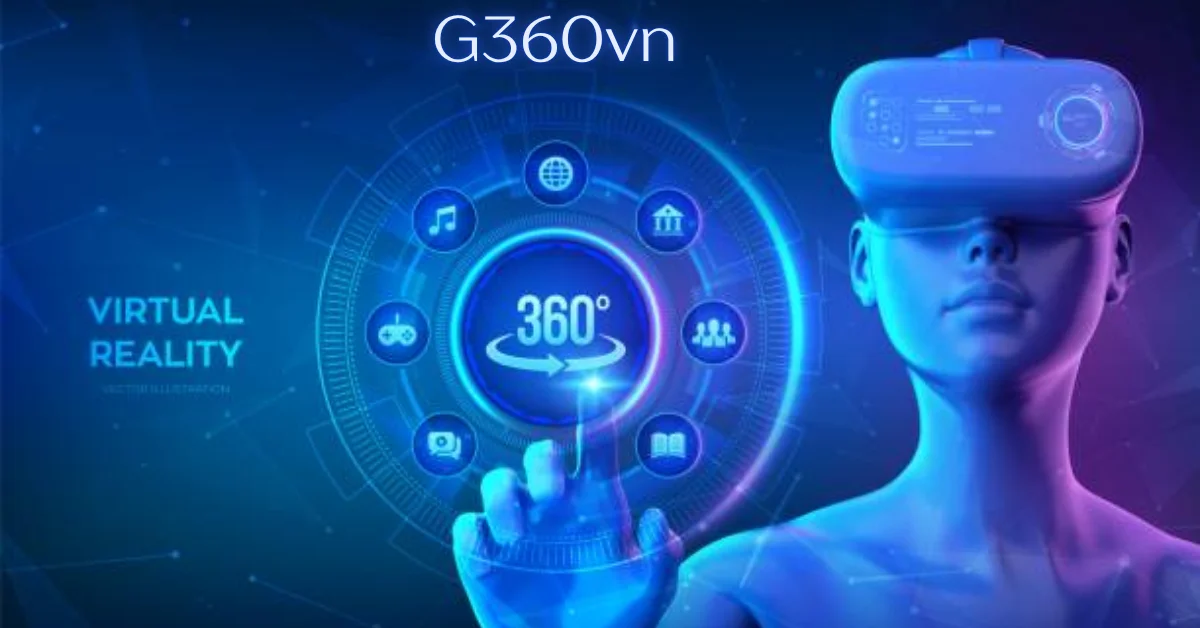Introduction to G360vn and its mission
In a world where technology is evolving at lightning speed, the landscape of national policy-making is undergoing a profound transformation. Enter G360vn—a dynamic initiative that embraces innovation to shape future-ready policies for nations. With its mission rooted in harnessing advanced technologies, G360vn seeks to bridge the gap between governance and digital solutions. Imagine a realm where data-driven decisions lead to efficient governance, citizen engagement is heightened through digital platforms, and transparency becomes the norm rather than the exception. This vision isn’t just aspirational; it’s becoming reality thanks to organizations like G360vn that are paving the way for smarter policies tailored for tomorrow’s challenges. Let’s explore how this initiative can revolutionize policy-making on both a national and global scale.
How technology is shaping national policies?
Technology is revolutionizing the way national policies are crafted and implemented. Data analytics, for instance, enables governments to gather insights from vast amounts of information. This leads to more informed decision-making.
Digital platforms facilitate greater citizen engagement. People can now voice their opinions in real-time, influencing policy directions that reflect public sentiment. Social media now serves as a strong platform for public advocacy and raising awareness on policy matters.
Artificial intelligence plays a role too. It helps predict outcomes of various policies by simulating different scenarios based on historical data. Policymakers can evaluate potential impacts before rolling out initiatives.
Moreover, blockchain technology enhances transparency and accountability within governmental processes. Citizens can track how decisions are made and funds are allocated.
As technology continues to evolve, it opens up new avenues for innovation in governance while addressing complex societal challenges more effectively than ever before.
The benefits of using technology in policy-making
Technology brings unprecedented efficiency to policy-making. Automated data analysis allows for quicker insights, helping decision-makers understand complex issues in real-time.
Transparency improves significantly with tech integration. Open data programs give citizens easy access to information, strengthening transparency and public trust in authorities. Engaged communities can provide valuable feedback when they feel informed.
Collaboration is enhanced through digital platforms. Policymakers can connect with experts from various fields instantly, tapping into diverse perspectives that enrich discussions.
Moreover, technology facilitates simulations and predictive modeling. This helps policymakers anticipate potential outcomes before implementing new regulations or programs.
Cost-effectiveness is another key advantage. By streamlining processes and reducing paperwork, governments save time and resources that can be redirected toward critical areas needing attention.
Case studies of successful tech-driven policies
Estonia has made a significant impact on governance by introducing its innovative e-Residency program. This initiative allows global citizens to start and manage businesses online, drawing international entrepreneurs into the Estonian economy.
Singapore’s Smart Nation initiative stands as another powerful demonstration of tech-driven governance. The government utilizes data analytics to improve urban planning and public transport systems. By integrating real-time traffic monitoring with citizen feedback, they enhance the commuting experience while reducing congestion.
Canada notably leverages artificial intelligence to enhance and modernize its policy-making processes. Their AI-driven tools analyze vast amounts of public data to create responsive healthcare policies tailored to community needs.
These cases illustrate how technology can lead to innovative solutions that address complex societal challenges effectively and efficiently. They set a precedent for countries looking to modernize their policy frameworks while fostering economic growth.
Challenges and concerns with integrating technology in policy-making
Integrating technology into policy-making comes with a myriad of challenges. One significant concern is data privacy. As authorities gather large volumes of data, ensuring the privacy and protection of citizens’ information becomes essential.
Another issue lies in the digital divide. Not everyone has equal access to technology, which can lead to disparities in representation and influence over policies that affect diverse communities.
Moreover, there’s often resistance from traditionalists who may view technological innovations as threats rather than tools for improvement. This skepticism can slow down progress and hinder collaboration among stakeholders.
Additionally, the rapid pace of tech advancement means policies can quickly become outdated or ineffective. Policymakers must stay agile and adapt continually to emerging technologies while ensuring they still meet public needs effectively.
These hurdles highlight the complexity involved in marrying technology with governance while striving for inclusivity and efficacy.
The role of G360vn in driving future-ready national policies
G360vn emerges as a pivotal force in shaping national policies that are both innovative and inclusive. By leveraging technology, it engages diverse stakeholders, ensuring that every voice is heard.
The organization fosters collaboration between governmental bodies and tech experts. This synergy paves the way for data-driven decisions that reflect real-world needs.
With its focus on sustainability, G360vn prioritizes policies that address pressing challenges like climate change and social inequality. The integration of smart technologies allows for adaptive solutions tailored to evolving circumstances.
Moreover, G360vn champions transparency within policy-making processes. By utilizing digital platforms, citizens can track progress and hold policymakers accountable.
Through workshops and training programs, G360vn equips leaders with the tools necessary for modern governance. Its commitment to education ensures future decision-makers embrace innovative thinking consistently.
Conclusion: The potential impact of G360vn on the global stage
The potential impact of G360vn on the global stage is immense. As a leader in leveraging technology for policy-making, it sets an example for other nations to follow. By integrating innovative tech solutions, G360vn aims to create responsive and adaptable policies that address contemporary challenges.
Countries around the world are watching closely as G360vn pioneers this new approach. The ability to harness real-time data can transform how governments operate, making them more efficient and effective. This could lead to improved public services and increased citizen engagement.
Moreover, G360vn’s commitment to transparency through technology fosters trust between citizens and their government. When people see that their voices matter in policy formulation, they become active participants rather than passive observers.
As digital transformation continues globally, the strategies developed by G360vn may serve as a blueprint for future-ready governance elsewhere. Countries looking to modernize can take valuable lessons from its experiences—both successes and challenges faced along the way.
If successful in implementing these tech-driven national policies, G360vn has the potential not just to improve life at home but also influence international standards of governance worldwide. The journey ahead is exciting; many will be keenly observing how this initiative unfolds as we move further into an increasingly interconnected world driven by innovation.
Let your love for learning blossom—step into a world of ideas on Tarnplanen.











